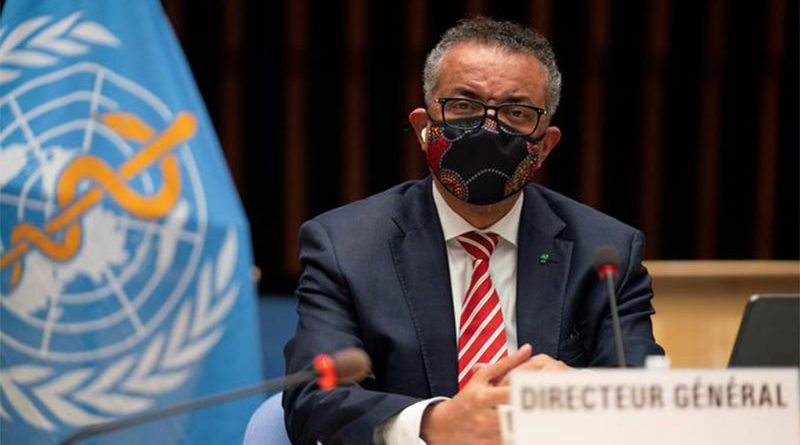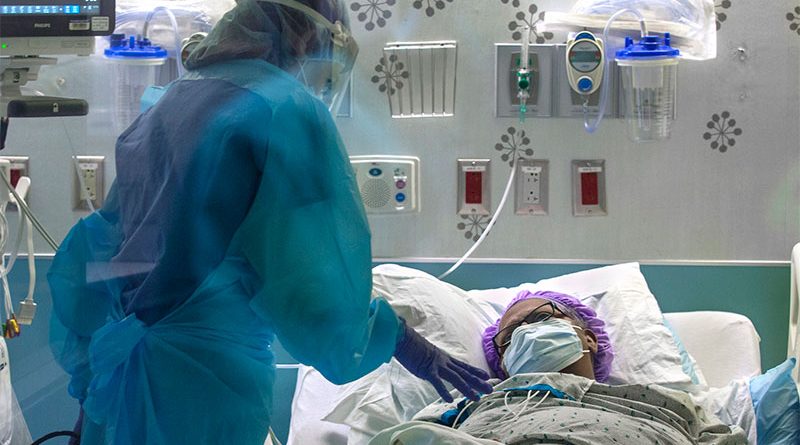Africa's COVID-19 cases pass 4.67 million: Africa CDC
Read more At:
https://www.aninews.in/news/world/others/africas-covid-19-cases-pass-467-million-africa-cdc20210515182806/
Tanzania on Monday announced new anti-coronavirus measures, saying it wanted to prevent the importation of new variants, highlighting new President Samia Suluhu Hassan's more active efforts to contain the pandemic.
Among the new measures, travelers, both foreigners and Tanzanians, will be required to present negative COVID-19 tests at border points.
Her approach to tackling COVID-19 contrasts sharply with her late predecessor John Magufuli who dismissed fears of the infection and promoted remedies such as steam inhalation and herbal concoctions as a cure.
"Based on the global epidemiological situation and emergence of new variants of viruses that cause COVID-19, there's an increased risk of their importation into our country," a ministry of health statement said.
To prevent such a risk, the statement said, Tanzania had "decided to elevate and enhance prevailing preventive measures, especially those with regard to international travel."
There will also be "enhanced screening" of travellers and a mandatory 14-day quarantine for travelers from countries with new variants and those who have traveled there in the last 14 days.
While staying in the country, the statement said, visitors, will be required to adhere to preventive measures including mask-wearing, sanitising and social distancing.
Magufuli, who died in March, had urged Tanzanians to shun mask-wearing and also denounced vaccines as a Western conspiracy, frustrating the World Health Organization and local critics. read more
Source - Reuters
THE African Union’s disease control body and World Health Organization yesterday urged African countries not to waste COVID-19 vaccines donated to them, after confusion in Malawi and South Sudan about whether doses they received had expired.
“My appeal to member states is: if we are doing our part to mobilise these vaccines, you do your part and use the vaccines,” John Nkengasong, director of the Africa Centres for Disease Control and Prevention (Africa CDC), told a news conference.
Malawi has said it plans to destroy more than 16,000 doses of AstraZeneca’s vaccine manufactured by the Serum Institute of India because the shots were not administered before the April 13 expiry date on the packaging. The doses were supplied via the AU thanks to a donation from telecoms group MTN
South Sudan has set aside 59,000 doses supplied by the AU and is not using them because of the same expiry issue, a government official told Reuters last week.
But Nkengasong, the continent’s top public health official, said the Africa CDC had informed countries receiving the donations that the shots could be used until July 13, based on a further analysis conducted by the Serum Institute.
Matshidiso Moeti, the WHO’s Africa director, told a separate briefing that the shots made by the Serum Institute should be stored until more information was available.
“My understanding is that the expiry date could be several months longer than had initially been envisaged. But we will look for the definitive information,” she said.
A spokesman for Malawi’s Health Ministry said on Thursday that he was not aware of Nkengasong’s comments but that the decision to incinerate the AstraZeneca doses was in line with government guidelines on expired pharmaceutical products.
He added that more than 80% of the 102,000 doses donated via the AU had been used before April 13.
Peter Aguek Akon, director-general of South Sudan’s Drugs and Food Control Authority, said it was up to the Health Ministry to inform the regulator if the vaccine’s expiry date had been extended.
“If they get the letter of extension, then they should bring the letter to us as a regulator to review if it will be acceptable,” he told Reuters.
African countries have struggled to secure enough COVID-19 vaccines to roll out mass immunisation campaigns. Many are reliant on donations from global vaccine scheme COVAX, which is co-led by the WHO and partners including the Gavi vaccines alliance.
Nkengasong said 15 million COVID-19 vaccine doses had been administered in Africa, out of a population of 1.3 billion. The Africa CDC has set a target of vaccinating 60% of the continent’s population, or 750 million people.
Source - Thomson Reuters Foundation
TUNISIAN hospitals have run out of intensive care beds amid a surge in COVID-19 cases, a member of the independent scientific committee that advises the government said yesterday.
Amenallah Messadi told Reuters the health system had been pushed to the point of collapse by a rise in cases driven by the more infectious coronavirus variant first detected in Britain.
The scientific committee was considering whether to recommend another border closure to avoid the spread of another variant first detected in Brazil, he added. Tunisia briefly closed its borders during the first wave of the virus.
“The situation is very critical, medical staff are exhausted, ICUs have reached their maximum capacity and deaths are on the rise,” he said.
Tunisia has recorded 291,000 coronavirus cases and about 10,000 deaths. The daily death rate which has hovered around 80 for the past two weeks reached 95 on Tuesday.
Authorities closed all schools last week until April 30 and banned people from driving cars from 7 p.m. to 5.a.m. to try and restrict movement.
Source - Thomson Reuters Foundation




